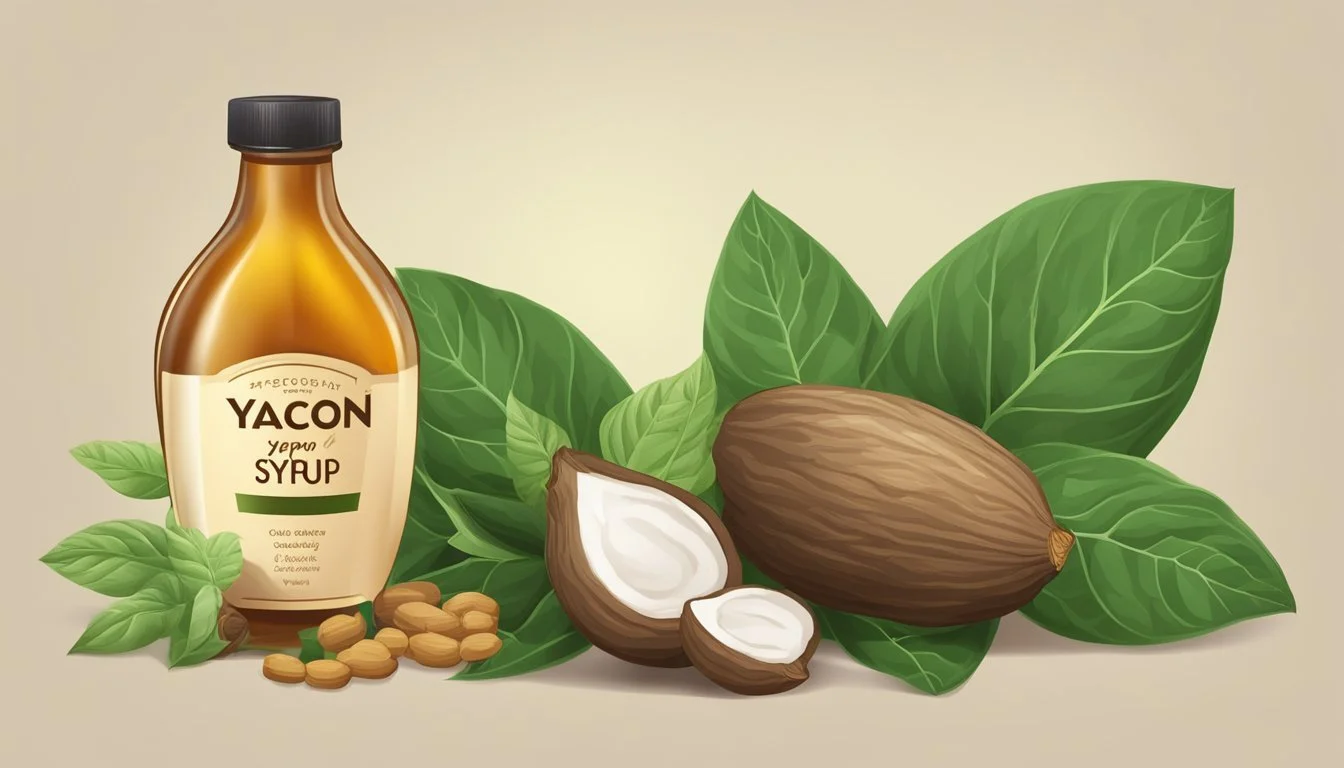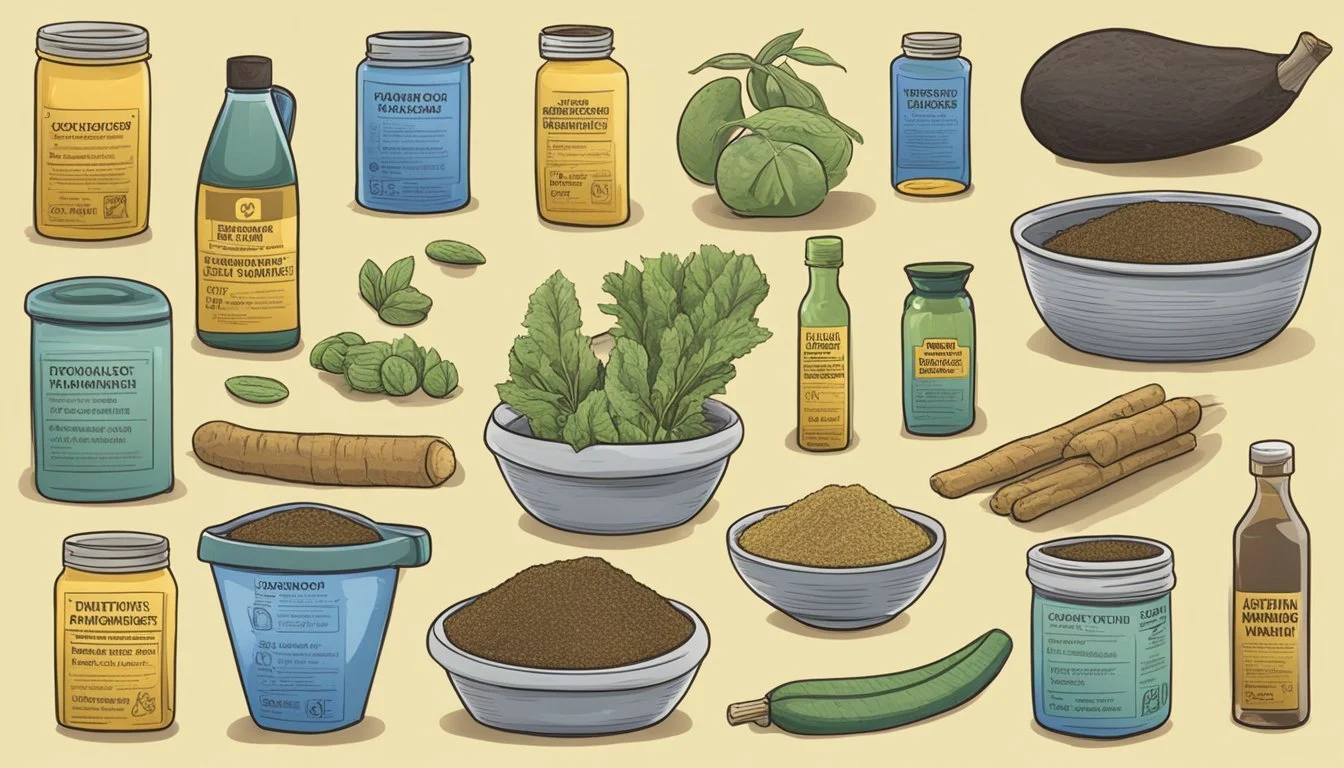Yacon Substitutes
Best Alternatives for Cooking and Baking
Yacon syrup has gained popularity as a natural sweetener due to its low glycemic index and prebiotic benefits. For those who cannot find yacon syrup or need an alternative, there are several effective substitutes available. Agave nectar is a standout option, offering a similar sweetness with the added benefit of a low glycemic index.
Other viable substitutes include beetroot, which is a root vegetable with a slightly sweet taste and high fiber content, making it a nutritious choice. Molasses can also serve as a substitute, using a 1:1 ratio in recipes, though its thicker consistency may influence the texture of baked goods.
These substitutes not only mimic the sweetening properties of yacon syrup but also provide additional nutrients and advantages. Each option offers a unique benefit, making it easy to find the perfect substitute for your culinary needs.
Understanding Yacon
Yacon is a root vegetable native to South America, known for its sweet taste and numerous health benefits. It contains essential nutrients and compounds like fructooligosaccharides, making it a popular choice for health-conscious individuals.
Origins and Composition
Yacon originates from the Andean regions of South America, particularly in countries like Peru and Bolivia. It has been cultivated and consumed for centuries by indigenous communities. The plant resembles a cross between a yam and a sweet potato, with a crisp texture.
Composition:
Fructooligosaccharides (FOS): These are natural sugars that act as prebiotics, promoting gut health.
Inulin: A type of soluble fiber that contributes to digestive health.
Antioxidants: Includes polyphenols and flavonoids, which help counteract oxidative stress.
Nutritional Information
Yacon is low in calories and rich in several nutrients, making it an ideal addition to a balanced diet.
Calories: Approximately 54 calories per 100 grams.
Carbohydrates: Around 12 grams, primarily from FOS and inulin.
Fiber: About 1.2 grams per 100 grams, promoting digestive health.
Vitamins: Contains Vitamin C, which supports the immune system.
Minerals: Includes potassium and calcium, essential for bone and heart health.
The low glycemic index of yacon makes it suitable for those monitoring their blood sugar levels, including diabetics.
Health Benefits of Yacon
Yacon offers an array of health benefits, thanks to its rich nutritional profile.
Prebiotic Effects: The FOS in yacon acts as a prebiotic, stimulating the growth of beneficial bacteria in the gut. This can improve digestion and nutrient absorption.
Weight Management: Low in calories and high in fiber, yacon can aid in weight loss by promoting a feeling of fullness.
Antioxidant Properties: The antioxidants in yacon help protect cells from damage caused by free radicals, reducing the risk of chronic diseases.
Blood Sugar Regulation: The low glycemic index and high fiber content help stabilize blood sugar levels, benefiting diabetics and those with insulin resistance.
Incorporating yacon into your diet can contribute to overall well-being and improved health metrics.
Yacon Syrup Characteristics
Yacon syrup exhibits unique qualities that differentiate it from other sweeteners. It is known for its distinct flavor and its impact on blood sugar levels, making it a popular choice among health-conscious consumers.
Flavor Profile
Yacon syrup possesses a distinctive flavor that is often compared to caramel or molasses. This rich and earthy taste sets it apart from other natural sweeteners such as honey or maple syrup. The syrup's thick, viscous consistency contributes to its unique texture, adding depth to various culinary applications.
When baked or cooked, yacon syrup maintains its flavor integrity, which makes it a versatile ingredient in recipes. Its natural sweetness is suitable for desserts, beverages, and even savory dishes, providing a complex and flavorful experience.
Glycemic Index Impact
One of the key attractions of yacon syrup is its low Glycemic Index (GI). Foods with low GI values are digested more slowly, leading to a more gradual increase in blood sugar levels. This characteristic makes yacon syrup a preferred option for those watching their blood sugar or managing diabetes.
The principal component of yacon syrup is fructooligosaccharides (FOS), which the body processes differently from regular sugars. FOS act as prebiotics, promoting good gut health without causing significant spikes in blood glucose. Thus, yacon syrup not only sweetens food but also supports balanced blood sugar levels.
Common Yacon Syrup Uses
Yacon syrup is versatile, serving as a sweetener in various culinary applications. Key uses are in beverages and baking, providing a healthful alternative to traditional sugar.
In Beverages
Yacon syrup is often added to beverages like tea and coffee. Its low glycemic index makes it suitable for those managing blood sugar levels. Unlike table sugar, yacon syrup offers a subtle, caramel-like sweetness without overpowering the drink's original flavors.
For iced teas and lemonades, yacon syrup dissolves easily, ensuring no gritty texture. It is also popular in smoothies, contributing natural sweetness along with potential digestive benefits due to its prebiotic properties. Use around one to two teaspoons per serving, adjusting to taste.
Baking Applications
In baking, yacon syrup acts as a sugar substitute in a range of recipes. Its moisture-retaining properties are ideal for cakes, cookies, and muffins, resulting in a softer texture. Replace sugar with yacon syrup in a 1:1 ratio but reduce other liquid ingredients slightly to account for its liquid form.
Yacon syrup can be used in desserts like brownies and energy bars, enhancing sweetness while adding nutritional value. The syrup's unique flavor profile pairs well with ingredients such as chocolate and nuts, providing a rich, nuanced taste.
Why Substitute Yacon Syrup?
Substituting yacon syrup might be necessary for various reasons including dietary concerns and availability issues. These factors play significant roles depending on personal health goals and logistical challenges.
Dietary Concerns
Individuals with diabetes often seek alternatives to yacon syrup due to its sugar content, even though it is lower compared to regular sugar. These substitutes typically have a lower glycemic index, which helps in maintaining stable blood sugar levels.
Calories and moderation are key elements for those aiming to reduce caloric intake. Yacon syrup, while healthier, still contains calories. Choosing substitutes with fewer calories aids in better weight management.
Storage and shelf life of yacon syrup can also be a concern. Some alternatives, like xylitol and agave nectar, might offer longer shelf lives and easier storage options, reducing spoilage.
Availability Issues
Yacon syrup might not be readily available in all regions. This is why substitutes such as agave nectar and beetroot are excellent options. They are more commonly found and can be used in similar culinary applications.
Beetroot serves as a unique replacement due to its similar root vegetable properties. It can be boiled, roasted, or used raw in salads, making it versatile.
When traveling or living in areas where yacon syrup isn't stocked, substitutes like xylitol and agave nectar ensure that dietary needs and culinary requirements are met without significant lifestyle changes.
Syrup-Based Substitutes
Syrup-based substitutes for yacon syrup offer a variety of flavors and nutritional profiles, each suitable for different dietary preferences and culinary needs. The key substitutes to consider are Maple Syrup, various types of Molasses, and Agave Nectar.
Maple Syrup
Maple syrup is a popular natural sweetener derived from the sap of sugar maple trees. It is a rich source of antioxidants and contains minerals such as manganese and zinc.
Maple syrup has a high sucrose content, making it sweeter than yacon syrup. Its distinctive flavor adds depth to a range of dishes, from pancakes to marinades.
Overall, it's a versatile substitute that can be used in both hot and cold recipes.
Molasses Varieties
Molasses comes in several types, each with unique characteristics. Light molasses is sweeter and lighter in color, while blackstrap molasses is darker, richer, and has a stronger, slightly bitter taste.
Blackstrap molasses is particularly nutrient-dense, containing high levels of iron, calcium, and potassium. Both types of molasses have a lower glycemic index than refined sugar, making them a good choice for those monitoring blood sugar levels.
Molasses can be used in baking, sauces, and even beverages for a robust flavor profile.
Agave Nectar
Agave nectar, also known as agave syrup, is extracted from the agave plant. It is known for its low glycemic index, primarily due to its high fructose content.
Agave nectar is about 1.5 times sweeter than sugar, allowing for reduced quantities in recipes. It has a mild, neutral flavor that does not overpower other ingredients.
Commonly used in baking, beverages, and desserts, agave nectar is a versatile substitute ideal for those seeking a plant-based sweetener with a smoother taste.
Non-Syrup Sweetener Alternatives
Several alternatives to yacon syrup can replace sugar in various recipes. Stevia, erythritol, monk fruit sweetener, and natural options like dates and coconut sugar offer unique benefits.
Stevia
Stevia is a natural, zero-calorie sweetener derived from the leaves of the Stevia rebaudiana plant. It's significantly sweeter than sugar, meaning a small amount can go a long way. Stevia’s potential to lower blood pressure and blood sugar levels adds health benefits. Available in powder, liquid, and granulated forms, it is versatile for baking, beverages, and cooking. Brands like Stevia In The Raw provide convenient conversion options, making it easy to substitute in recipes.
Erythritol
Erythritol is a sugar alcohol with only 6% of the calories found in sugar. Despite its low calorie content, it maintains approximately 70% of the sweetness of sugar. It does not cause spikes in blood sugar levels and is often used in low-carb and sugar-free recipes. Erythritol is derived from fermented corn or cornstarch and is available in granulated and powdered forms. Because of its high digestibility, it is less likely to cause digestive discomfort compared to other sugar alcohols.
Monk Fruit Sweetener
Monk fruit sweetener, extracted from the monk fruit, offers a sweetness hundreds of times greater than sugar. This sweetener contains mogrosides, which are responsible for its intense sweetness and medicinal properties. Monk fruit sweetener is calorie-free and does not affect blood glucose levels, making it an excellent choice for diabetics and low-carb diets. Available in liquid, granulated, and powdered forms, it is suitable for a variety of culinary uses. Its antioxidative properties provide an added health benefit.
Dates and Coconut Sugar
Dates are a whole-food alternative containing fiber, potassium, and magnesium. They can be used in their natural form or as date syrup or paste. Their rich, caramel-like flavor makes them suitable for desserts and sweet recipes, offering both sweetness and nutritional value.
Coconut sugar, derived from the sap of the coconut palm, retains some nutrients such as iron, zinc, calcium, and potassium. It has a lower glycemic index than regular sugar, which means it causes a slower rise in blood glucose levels. Coconut sugar's subtle caramel flavor pairs well with baked goods, sauces, and beverages.
These alternatives provide various health benefits while offering versatility for different culinary needs.
Considerations When Choosing Substitutes
When choosing a substitute for yacon syrup, several factors are important, including the sweetness and flavor, health impact, and how well the substitute works in different cooking and storage conditions.
Sweetness Intensity and Flavor Matching
The sweetness level and flavor of the substitute are crucial. Yacon syrup has a unique caramel-like flavor with a moderate sweetness. Substitutes like agave nectar and molasses offer a similar caramel or molasses taste, making them suitable flavor matches.
Agave nectar is about 25% sweeter than sugar, so less can be used to achieve the desired sweetness. On the other hand, date syrup has a caramel flavor but is not as intensely sweet. The right substitute depends on whether a more neutral flavor or a bolder taste is required.
Health Impact and Nutrition
Health and nutritional impact are key factors. Yacon syrup is known for its low glycemic index, making it a good option for individuals monitoring their blood sugar. Agave nectar resembles yacon in its glycemic response but contains high fructose, which can impact health negatively if consumed in large amounts.
Molasses offers some nutritional benefits, being rich in minerals like iron, calcium, and magnesium. Date syrup is also nutrient-dense, providing vitamins and minerals, though it is higher in calories.
When seeking healthier options, it’s essential to consider the overall nutrient profile and calorie content of each substitute.
Cooking and Storage
Different substitutes perform variably in cooking and storage. Molasses has a thick consistency similar to yacon syrup, making it suitable for recipes needing that texture.
In terms of storage, both molasses and date syrup have a long shelf life. Beetroot, as a solid root vegetable, can be used in various culinary applications but lacks the syrupy consistency for beverages or specific recipes.
Understanding the cooking properties and storage requirements of each substitute ensures the chosen ingredient will be practical for intended uses. The table below provides a quick comparison:
Substitute Flavor Profile Shelf Life Agave Nectar Caramel-like, Sweet Long Molasses Rich, Molasses Long Date Syrup Caramel, Fruity Long Beetroot Earthy, Slightly Sweet Moderate
Potential Health Concerns with Substitutes
Using substitutes for yacon can lead to different health impacts. Two primary areas of concern are the effect on blood sugar and insulin levels, as well as potential gastrointestinal side effects.
Effect on Blood Sugar and Insulin Levels
Substitutes for yacon syrup, such as honey or other natural sweeteners, can have varying effects on blood sugar and insulin levels. Honey has a higher glycemic index compared to yacon syrup, meaning it can cause a more significant spike in blood sugar. This can be particularly problematic for individuals with diabetes or those at risk of developing insulin resistance.
Conversely, substitutes like beetroot may have a more moderate effect on blood sugar due to their fiber content, which slows glucose absorption. It's essential for individuals to monitor their insulin levels and blood sugar responses to different substitutes to prevent potential negative side effects such as increased cholesterol and triglycerides.
Gastrointestinal Side Effects
Switching to yacon substitutes can lead to various gastrointestinal side effects. For instance, consuming sweeteners like beetroot or other fiber-rich alternatives can cause bloating, diarrhea, and stomach pain if eaten in large quantities. While fiber is beneficial for gut health, excessive intake can lead to constipation or nausea.
Individuals with sensitive digestive systems should introduce new substitutes gradually, monitoring for any adverse effects. Understanding how these substitutes affect one's gastrointestinal tract is crucial for preventing Weight Gain and managing overall gut health effectively.
Incorporating Substitutes into Your Diet
Adding yacon syrup alternatives to one's diet can be straightforward and beneficial. Here are some tips to help incorporate these substitutes effectively.
Agave Nectar
Agave nectar has a low glycemic index, making it a suitable option for people with type 2 diabetes. It can be used in beverages, desserts, and marinades.
Blackstrap Molasses
Blackstrap molasses is rich in antioxidants and iron. It adds a robust flavor to baked goods and sauces and can enhance the nutritional profile of your meals.
Maple Syrup
Maple syrup, a natural sweetener, brings an earthy flavor and is good for pancakes, oatmeal, and even some savory dishes. It’s also lower in calories compared to regular sugar.
Honey
Honey is versatile and packed with prebiotics, promoting digestive health. Use it in tea, on toast, or in dressings to add natural sweetness.
Xylitol
Xylitol is a sugar alcohol with fewer calories and a lower glycemic index. Ideal for beverages and low-calorie desserts, it can help in weight loss.
Beetroot
Beetroot offers fiber and anti-inflammatory properties. It can be grated into salads or cooked in stews, providing a slightly sweet taste. Its fiber content aids in feelings of fullness and digestive health.
Each substitute provides unique health benefits and can be seamlessly integrated into various recipes. By considering their individual properties, these alternatives can help maintain a balanced and health-conscious diet.









